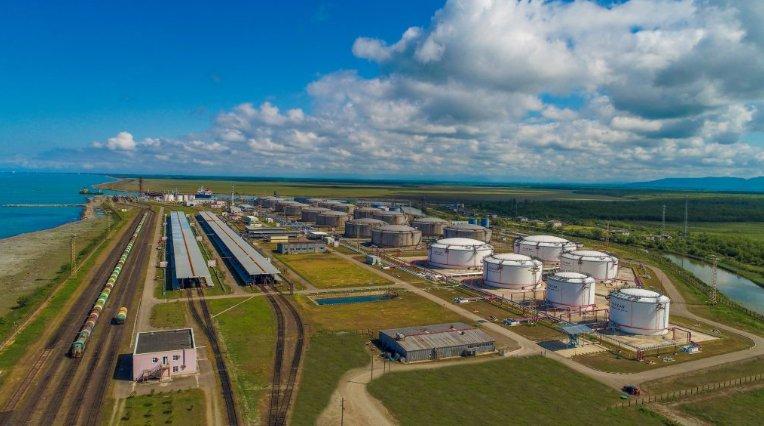A Georgian refinery’s recent decision to accept Russian oil shipments has ignited fresh concerns over potential sanctions violations, drawing attention from international watchdogs and policymakers. The move, reported by The Jamestown Foundation, highlights the complex challenges facing countries navigating energy dependencies amid ongoing geopolitical tensions. As Western nations maintain stringent measures against Russia’s energy exports, this development raises critical questions about enforcement and the evolving landscape of sanctions compliance.
Georgian Refinery’s Acceptance of Russian Oil Sparks International Backlash
The decision by a major Georgian refinery to resume processing Russian oil has ignited a wave of criticism across the international community. Analysts warn that this move could undermine ongoing sanctions aimed at curbing Russia’s oil exports amid geopolitical tensions. The refinery’s management contends that economic pressures and supply chain constraints left them with limited options, emphasizing the critical need to maintain fuel supplies domestically. However, several Western governments have expressed concern that this development risks creating loopholes that could weaken the effectiveness of global sanctions regimes.
Key concerns highlighted by experts include:
- Potential circumvention of sanctions via indirect trade routes
- Increased risk of diplomatic fallout affecting Georgia’s international relations
- Market distortions impacting regional oil prices and supply stability
| Impact Area | Immediate Effect | Long-Term Risk |
|---|---|---|
| Sanctions Enforcement | Compromised | Weakened global unity |
| Political Relations | Tense diplomatic ties | Possible sanctions on Georgia |
| Energy Market | Supply stabilization | Price volatility |
Implications for Regional Sanctions Enforcement and Energy Security
The acceptance of Russian oil by the Georgian refinery complicates the landscape of regional sanctions enforcement, challenging existing frameworks designed to limit Moscow’s energy influence. This move exposes potential gaps in monitoring mechanisms and enforcement protocols, particularly in regions with porous borders and intertwined energy markets. Authorities face increasing pressure to reconcile economic dependencies with geopolitical imperatives, especially as Russia seeks alternative channels to sustain its oil exports amid Western restrictions.
Key concerns include:
- Risk of sanctions evasion through transshipment or re-labeling of crude oil sources
- Undermining collective Western efforts by creating loopholes in enforcement
- Heightening of geopolitical tensions between sanctioning bodies and regional actors
From an energy security perspective, reliance on Russian crude-even indirectly-raises alarm bells for countries aiming to diversify imports and reduce dependency on Moscow’s resources. The incident underscores the fragile balance between energy needs and strategic autonomy, pushing governments to accelerate efforts in alternative supply chains and regional cooperation.
| Impact Area | Potential Consequence |
|---|---|
| Sanctions Enforcement | Increased monitoring complexity and risk of sanctions violations |
| Regional Stability | Heightened diplomatic strains amid conflicting policy goals |
| Energy Security | Potential prolonging of dependence on Russian energy supplies |
Policy Recommendations for Strengthening Regulatory Oversight and Compliance
To address the emergent risks linked to the Georgian refinery’s decision to process Russian oil amidst existing sanctions, regulatory authorities must adopt a more robust framework that prioritizes transparency and accountability. Key actions include:
- Enhanced monitoring: Deploy advanced tracking technologies to verify the origin of crude supplies and ensure no sanction breaches occur.
- Stricter reporting requirements: Mandate comprehensive disclosure of import sources and transaction details to relevant oversight bodies.
- Inter-agency coordination: Foster collaboration between customs, energy regulation agencies, and international watchdogs for timely information exchange.
Furthermore, compliance mechanisms should be strengthened through a calibrated enforcement regime that balances deterrence and cooperation. Applying rigorous penalties for violations, coupled with incentivizing voluntary adherence, will reinforce the regulatory environment.
The following table outlines a simplified framework for risk levels associated with refinery operations and corresponding recommended regulatory responses:
| Risk Level | Regulatory Action | Compliance Support | |
|---|---|---|---|
| Low | Routine audits | Guidance workshops | |
| Moderate | Enhanced inspections | Compliance helpline | |
| High | High | Targeted investigations and penalties | Dedicated compliance officers |
Implementing this stratified approach will allow regulators to allocate resources more efficiently and respond proportionally to the varying levels of risk. In conjunction with ongoing international cooperation, these measures are vital to uphold the integrity of sanctions enforcement and mitigate potential reputational and legal risks for the Georgian refinery sector.
If you need this adapted, expanded, or converted into another format, let me know!
Wrapping Up
The decision by the Georgian refinery to accept Russian oil shipments has sparked renewed debate over the effectiveness and enforcement of existing sanctions. As geopolitical tensions persist, this development underscores the complexities faced by nations navigating economic interests and international regulations. Observers and policymakers alike will be watching closely to assess the broader implications for regional stability and the future of sanctions compliance.




